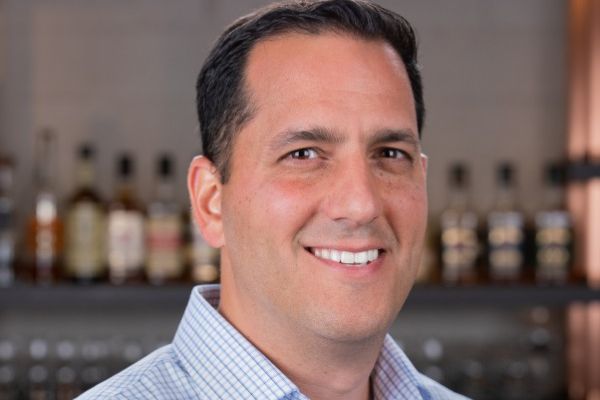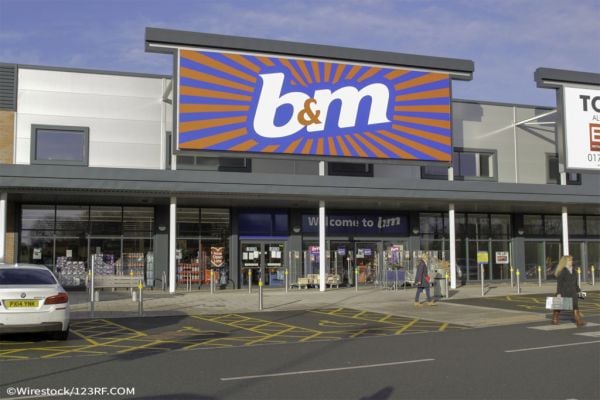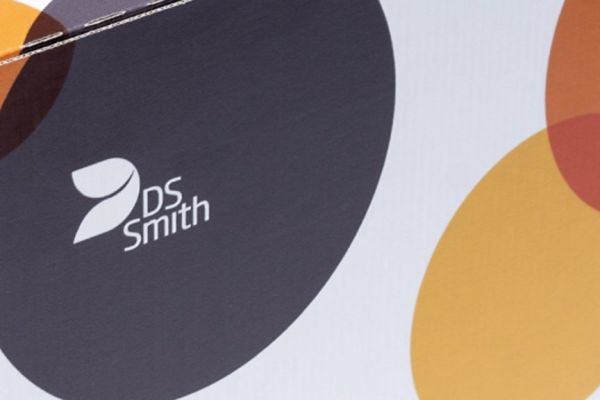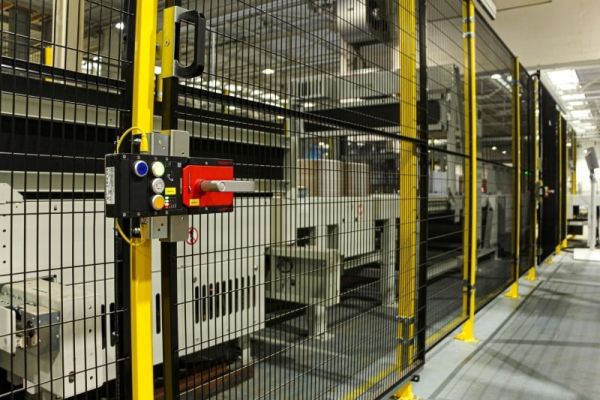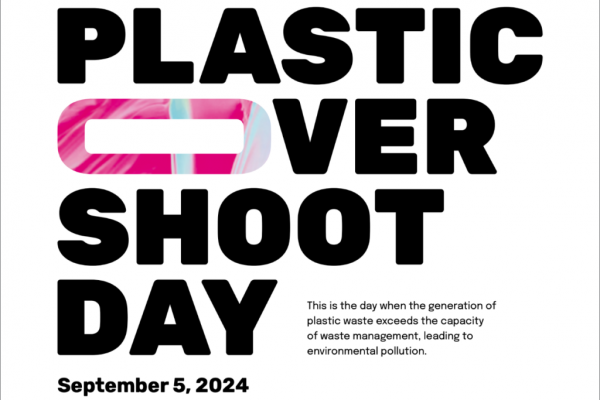Packaging plays a pivotal role in the world of FMCG, with manufacturers and retailers in constant competition to win the shelf-shout and information wars. ESM's editor Kevin Kelly spoke exclusively to Gary McGann, CEO of the pioneering Smurfit Kappa Group, about the rise of private label and sustainability, the challenge to reduce waste, and the amazing opportunities for innovation in 2014.
In recent years, the growth of European retailers’ private-label and store brands has been a significant development in the grocery business across the Continent. While price was the initial driving factor, there is no doubt that the design and shelf presentation of private-label goods have been crucial elements in their incredible success.
“The moment of truth is when the shopper makes a decision at the shelf about the product he or she goes for – the one that was advertised but has a higher price tag, or the private label that is just as attractive and cheaper, but not cheap,” says Gary McGann, CEO of the Smurfit Kappa Group (SKG). “Everything else is conjecture. We have done a huge amount of research on shopper marketing, the psychology of con- sumer decision-making. With all the sophistication and technology we have acquired, the four Ps – product, price, place and promotion – still stand today.”
There are over 100 major packaging companies involved in the European grocery business, supplying aluminium cans, bottles, aerosols, labels, containers, cartons, and, of course, the card- board cartons used to transport products and ensure that they not only arrive in pristine condition, but have high impact at the point of purchase. SKG, one of the leading producers of paper- based packaging, is at the heart of this dynamic and innovative work. It has 41,000 employees across 32 countries and 2012 sales revenues of €7.3b.
It is no surprise that private label has gained credence with the big European retail operators actively engaged in developing, evolving and fine-tuning their private- label portfolios. Tesco recently redesigned the Tesco Finest range as part of a huge private-label revamp. In Switzerland, Migros has upgraded its Health & Beauty range, while in France, Carrefour, an innovator in private label, has introduced 1,000 private- label products per year. In Ireland, the progressive Musgrave Group unveiled its new Signature range and backed it up with an aggressive television advertising campaign. Across Europe, the big names are on the march. Dia, Delhaize, Axfood, Auchan, Casino and ICA are just some of the big names ramping up their private-label offerings.
“Private label is becoming increasingly significant to us,” declares McGann, who has seen huge changes in the industry. “However, it almost goes without saying that our FMCG customers remain an extremely important part of our business,” he adds.
“Shelf-ready packaging is the area where private label is driving the standard up and up. [It is] driving white-coated paper rather than brown paper, multicolour artwork rather than two or three colours.”
An Ambitious And Dynamic Company
Packaging in all its formats is a huge part of the European grocery business, and in recent years, packaging and design companies have looked to the big retail chains for key growth and profitability. The introduction of new European legislation, traceability regulations, and warnings on cigarette and alcohol packaging have led to new and exciting opportunities for European packaging companies. SKG, an efficient and ambitious company, is determined to exploit them. It is a fascinating rise to prominence for a company that started life as a small family-run operation in Clonskeagh, Dublin.
It was Dr Michael Smurfit who was the driving force of the company after he took over the reins from his father, Jefferson Smurfit, and through exceptional hard work turned it into a world-class operation. In the process, he also became one of the wealthiest and most respected business tycoons in Europe. His list of honours is remarkable and includes his appointment in 2005 as a Knight Commander of the Most Excellent Order of the British Empire (KBE) in the Queen’s Birthday Honours list. He is also a Chevalier of the Le?gion d’Honneur in France, and now resides in Monte Carlo, where he is the honorary Irish consul to Monaco.
In its mission statement, SKG claims to cherish entrepreneurial spirit in a decentralised management style while striving to be a customer-orientated organisation, which is very much the Michael Smurfit ethos. As SKG grew into a multinational business, the family holding inevitably declined, but the Smurfit DNA is still very much part of the success today. Michael’s son, Tony, is primarily based in Paris, where he is the chief operating officer.
One of Michael Smurfit’s most strategic and important decisions was to appoint Gary McGann (a former financial controller of L M Erickson, CEO of Gilbeys in Ireland and CEO of Aer Lingus) as chief executive officer of the Smurfit Kappa Group. Smurfit always maintained that choosing the right successor was key to growing a world-class business, and in McGann he made a wise decision.
Worldwide Interests
McGann, 62, has been at the head of the company for more than ten years. An intelligent man with a worldly manner after many years at the top in business, he is still excited by the future and SKG’s potential. Over lunch he tells me that the company’s already a global player with a vast geographical spread – 70-75 per cent in Europe, including Eastern Europe, and 25-30 per cent in the Americas, predominantly Latin America and Central America. Operating in 22 European countries, McGann adds that the company is number one and two in 14 of those.
Although recent SKG growth has been helped by the rise of private label, McGann says that the big FMCG brands are, without doubt, very important to the company. “In addition to the major retailers, we do business with most of the great FMCG companies, such as H J Heinz, Danone, Unilever, Procter & Gamble, Nestle?, Coca-Cola, PepsiCo and Mondele?z,” he says. “We are the brand leader and number one in many markets in terms of paper packaging. We have a very close relationship with our clients, and in many cases, we have staff embedded in our major customers’ companies, and we work together to generate efficiency and profitability.”
At its Innovation Event 2013 in Amsterdam (entitled ‘The Future Unpacked’), to which over 180 key customers were invited, Tony Smurfit said, “Today it often feels like the world is changing at an ever-increasing speed. We are spending more time online than ever before, and at Smurfit Kappa, we are ready for the future. We are constantly developing new packaging solutions and upgrading our existing packs and services while exploring new markets, such as e-commerce.
“We go to these efforts to ensure that our customers are winners in the marketplace. What we are focusing our attention on is virtual reality, and we are using this exciting technology to help you stay ahead of the game. We have invested in a virtual store with products so real you can almost touch them. We are researching the possibilities of augmenting reality, and have already made giant leaps in applying this technology for your benefit.
“At this innovation event, you can see both pieces of this technology at work. While we believe that innovation technology, like virtual reality, will shape the future, we have not lost our focus on sup- ply chain, packing lines and sustainable raw materials. We remain focused on areas that are important now and will remain so for years to come, while at the same time, exploring the possibility of new technologies.”
Aldi And SKG – A Model Relationship
Aldi is a classic example of what Tony Smurfit was talking about. SKG has created the Aldi Insight Centre in Staffordshire, UK. Here SKG has formed a dedicated support team trained in all aspects of the Aldi philosophy to work alongside the retailer and understand its vision of the product ranges in order to create innovative and efficient packaging solutions that are commercially deliverable.
Aldi’s goal is to achieve the highest level of cubic optimisation through the store network and logistic channels combined with category management principles to ensure correct product placement. The Insight Centre gives it the opportunity to focus on the product, category or goal, and then overcome in-store difficulties. Aldi’s recent sales increases have been significant.
“The benefits of the Insight Centre are many,” McGann explains. “The benefits are: better presentation, products that optimise the space, integrating the compliance with Aldi shelf plans, and outer-case consistency in style and in colour, which is important to the retailer. Smarter packaging concepts ultimately deliver increased sales and optimise cost.”
FMCG Efficiently On The Shelf
The big FMCG companies are absolutely key to SKG, Gary McGann points out. SKG has launched regular newsletters for its FMCG customers, which are circulated to both the FMCG customers’ senior management teams and the SKG managers working on the account. They are insightful documents that deliver a wide range of interesting information. “The sales per month are charted, cost-improvement targets are analysed, delivered direct savings are explained, but one of the major features of the newsletter is the quality performance, which makes for very impressive reading across many of our customers,” says McGann.
The newsletter also delivers information on how SKG is working with its FMCG customers to improve not only the presentation of the product on shelf, but also a portfolio of merchandising, point-of-sale material and in-store promotional opportunities, including gondola ends.
McGann highlights the newsletter created for Mondele?z International. This is one of SKG’s more complex accounts, given that it supplies Mondele?z in 13 countries across Europe, from 42 Smurfit Kappa facilities to 36 Mondele?z operations. The newsletter carries the essential function of ensuring that important activities are captured and reported to the European buying team.
This is used as a communication tool to ensure that everyone, from all areas of Europe, is involved in the process and is made aware of the expectations. It is key that they are all singing from the same hymn sheet.
SKG believes that the future is shopper marketing across its portfolio – consumer packaging, food packaging and retail-ready packaging.
The recent acquisition of CRP Print and Packaging Holdings Limited in the UK, a specialist in digital printing as well as litho-laminated packaging, 3D point of sale, HD preprint and more, shows SKG’s commitment to building its portfolio in providing the highest-quality printing to its customers.
One of the key innovations for SKG in 2014 is the introduction of the Store Visualiser. This technology allows the customer – whether it is the packaging buyer, brand designer, category manager, sales manager or merchandising chief – to see a product presented on the shelf at different times of the day, from early in the morning to late at night, when the shelf is half empty. This enables the brand team to see how the SKUs are working – an interesting idea that gets to the heart of what brand owners need to know. With Tesco now charging £30 for put- ting a SKU on the middle shelf, it is clearly more important than ever to get your packaging right.
A further exciting innovation is in the area of digital printing, where new technology being introduced by SKG enables printing for ‘late- stage differentiation’, thereby allowing the customer to introduce further personalisation or add further unique features to the packaging at a late stage in the production process.
McGann, a quietly spoken but charismatic Dublin man with strong Roscommon affinities, believes that 2014 is going to be a big year in the world of packaging. Since his appointment as CEO, he has directed SKG through difficult times and choppy waters with a steady hand, a fact acknowledged by the financial analysts. His reputation amongst his peers is acclaimed.
A fan of McGann is Barry Dixon, head of research at Davy. He told ESM, “Smurfit Kappa’s share price has almost doubled this year, outperforming every other packaging stock in the sector, as well as the broader market indices. The main reason for this extraordinary performance has been the strong growth in profitability in recent years – EBITDA has increased from €741m in 2009 to an estimated €1135m this year.”
Dixon continues, “Much of this profit growth has been converted to cash, which, to date, has been used to pay down debt. Now that the balance sheet has been largely repaired, equity holders are likely to benefit, and many investors are anticipating this cash windfall. The company has grown profits through a combination of recovering markets, but also a keen focus on product innovation and operational efficiency. We expect the share price to continue to rise, outperforming both the sector and the broader market.
“Gary McGann has been at the helm of SKG since 2002. He has overseen the transformation of the business, including the merger with Kappa Group in 2005, the IPO in 2007, and the expansion of the Latin American business. He is widely regarded as one of the smartest CEOs in the sector.”
Speaking at one of the most important RISI conferences, in San Diego, California, McGann explained the virtual store concept and talked about the 15-per-cent increase for Unilever’s ice-cream business in Italy, where SKG packaged Unilever ice-cream bars in a new, jointly designed Magic Box carton. The carton is open-ended, which increases cooling, and printed colourfully inside and out, to help the customer easily find the product. Unilever, to whom ice cream is all important, was delighted with the packaging innovation.
McGann went on to say that his firm has spent the last five years repairing its financial sheet and was now looking at acquisition opportunities. “The firm is open to M&A possibilities, particularly in areas where we have market know-how, ground- ing and very special expertise,” he said. His final statement to this influential audience was, “While printing and writing paper is in decline in Northern and Western Europe, paper packaging – in which SKG is a major player – is going to have its day in the sun.” It looks like 2014 will be a special year for SKG.
© 2013 - European Supermarket Magazine by Kevin Kelly

